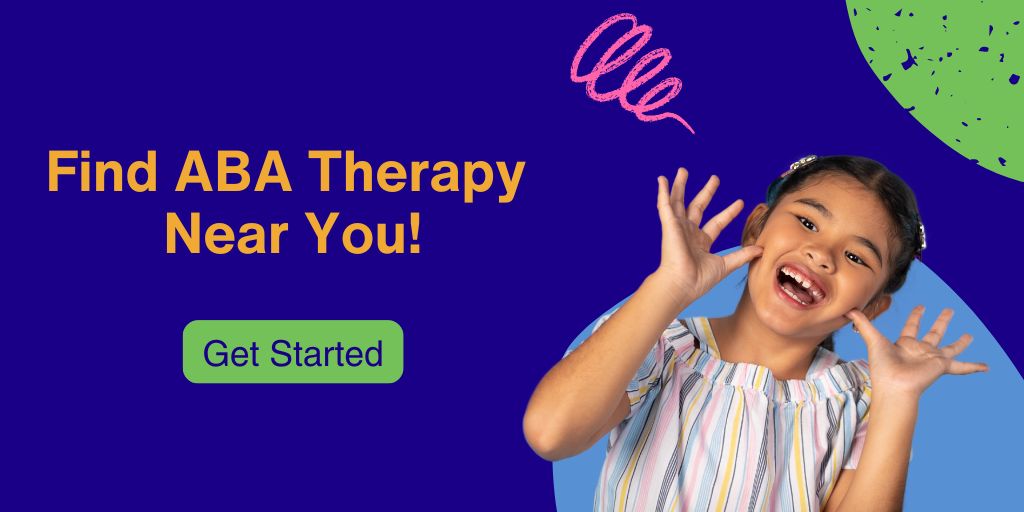Applied Behavior Analysis (ABA) therapy is one of the most widely recognized interventions for children with autism spectrum disorder (ASD). Renowned for its evidence-based approach, ABA has been praised for improving a range of skills, from communication to daily living.
Among its many applications, its role in enhancing emotional-social skills in autistic children stands out as particularly impactful. This article explores the effectiveness of ABA therapy in fostering emotional-social development, supported by scientific evidence, while addressing controversies and emphasizing the need for compassionate, individualized application.
Understanding ABA Therapy
ABA therapy is grounded in the principles of learning theory, specifically operant conditioning, which focuses on reinforcing desired behaviors to encourage their repetition. For children with ASD, ABA is tailored to address individual challenges, helping them acquire skills that may not develop naturally.
Emotional-social skills, such as understanding emotions, engaging in reciprocal conversations, and interpreting social cues, are critical areas of focus. ABA therapy is typically delivered by registered behavior technicians (RBTs) and board-certified behavior analysts (BCBAs), who work closely with children to practice skills in structured and natural settings.
The therapy’s flexibility allows it to be adapted for children of all ages, from early childhood to adolescence. Programs often involve 10 to 40 hours of weekly sessions, depending on the child’s needs, with intensive interventions showing the most significant outcomes when sustained over 1-3 years.
The Importance of Emotional-Social Skills in Autism
Children with ASD often face unique challenges in emotional and social development. They may struggle to recognize facial expressions, understand others’ perspectives, or express their feelings, which can lead to frustration, social isolation, and difficulties forming relationships.
These challenges can significantly impact their quality of life, making it essential to address emotional-social skills early on. By improving these skills, children can better navigate social environments, build meaningful connections, and achieve greater independence.
For example, a child who learns to interpret a peer’s tone of voice or respond appropriately during a conversation is better equipped to participate in school activities or family interactions. Emotional-social skills also play a crucial role in emotional regulation, helping children manage anxiety or frustration in constructive ways.
How ABA Therapy Addresses Emotional-Social Skills
ABA therapy employs a variety of techniques to teach emotional-social skills, making complex behaviors more accessible through structured learning. Key methods include:
- Modeling: Therapists demonstrate appropriate social behaviors, such as sharing or greeting others, for the child to imitate.
- Role-Playing: Children practice social scenarios, like resolving a conflict or initiating a conversation, in a safe, controlled environment.
- Positive Reinforcement: Desired behaviors, such as making eye contact or using polite language, are rewarded with praise, tokens, or other incentives to encourage repetition.
- Visual Aids: Tools like social stories or picture cards help children understand social norms and expectations.
- Group Learning: Structured group settings allow children to practice social skills with peers, fostering collaboration and camaraderie.
These techniques are designed to break down social interactions into manageable steps, enabling children to learn and generalize skills across different contexts. For instance, a child might practice turn-taking during a therapy session and later apply it during a playdate.
ABA also focuses on developing empathy, a critical emotional-social skill. By teaching children to observe facial expressions, tone of voice, and body language, ABA helps them interpret and respond to others’ emotions. This approach is efficient when started early, between 18 and 36 months, as young children are more receptive to learning foundational skills.
Evidence Supporting ABA Therapy’s Effectiveness
Research provides robust evidence for the effectiveness of ABA therapy in enhancing emotional-social skills in autistic children. A 2024 study published in BMC Psychology investigated the impact of ABA program training on institutionalized autistic children. The quasi-experimental research involved 60 participants aged 4-11 in Wuhan, China, who participated in eight one-hour sessions twice a week. Using multivariate analysis of covariance (MANCOVA), the study found significant improvements in:
| Outcome | Statistical Significance | Effect Size (η²) |
| Social Skills | p < .001 | 0.175 |
| Communicative Skills | p = .021 | 0.064 |
| Adaptive Behaviors | p = .001 | 0.116 |
| Separation Anxiety | p = .008 | 0.080 |
| Total Score | p = .014 | 0.071 |
The study concluded that ABA significantly enhances social, communicative, and daily life skills, confirming its value in supporting emotional-social development.
A 2023 meta-analysis in BMC Psychiatry reviewed 11 studies with 632 participants and found that comprehensive ABA-based interventions had medium effects on intellectual functioning (standardized mean difference, SMD = 0.51) and adaptive behavior (SMD = 0.37). While the study noted that language abilities and symptom severity did not improve beyond control groups, adaptive behavior includes social and emotional components, suggesting ABA’s positive impact in these areas.
Another 2018 study published in ScienceDirect reported that ABA programs were moderately to highly effective in improving socialization, alongside communication and expressive-language skills. These findings underscore ABA’s ability to foster social engagement and emotional understanding.
Real-world examples further illustrate ABA’s impact. Parents often report that their children become more empathetic, better at resolving conflicts, and more comfortable in social settings after ABA therapy.
Controversies and Criticisms
Despite its effectiveness, ABA therapy has faced significant criticism, particularly regarding its historical use of punitive measures and its potential to prioritize conformity over emotional authenticity. Critics argue that traditional ABA methods may discourage natural behaviors, such as stimming, which serve as coping mechanisms for autistic children. According to critics, suppressing these behaviors without addressing their emotional significance can lead to stress or anxiety, with some studies suggesting a link between early ABA exposure and increased post-traumatic stress symptoms.
Modern ABA practices emphasize positive reinforcement and individualized approaches in response to earlier concerns. Researchers note that contemporary ABA builds on children’s strengths and interests to enhance participation while respecting neurodiversity. Critics caution that poorly implemented ABA may pressure children to mask autistic traits, harming their emotional well-being.
Best Practices for Ethical and Compassionate ABA Therapy
To maximize the effectiveness of ABA therapy while addressing concerns, practitioners should adhere to best practices:
- Individualization: Therapists must tailor therapy plans to the child’s unique needs, preferences, and developmental stage.
- Positive Reinforcement: Focus on rewarding desired behaviors rather than punishing undesirable ones to create a supportive learning environment.
- Respect for Neurodiversity: Acknowledge and value the child’s natural behaviors, ensuring therapy supports their identity rather than forcing conformity.
- Emotional Focus: Incorporate strategies that address emotional understanding, such as teaching children to recognize and express their feelings.
By following these principles, ABA therapy can foster emotional-social growth in a way that is both effective and compassionate. For example, therapists might use a child’s interest in trains to teach turn-taking during a play session, making learning engaging and relevant.
Real-World Impact of ABA Therapy
The transformative impact of ABA therapy is evident in the stories of hope by families and children. Children who once struggled with social isolation have learned to initiate conversations, share with peers, and manage their emotions more effectively.
For instance, a parent shared, “Learning to request his needs has taught Brian a valuable lesson; using words can open up new doors and opportunities.”
Group-based ABA sessions also promote social skills by providing opportunities for children to interact with peers in structured settings. These interactions foster a sense of belonging and help children practice skills like cooperation and empathy in real-world contexts.
Conclusion
The effectiveness of ABA therapy in enhancing autistic children’s emotional and social skills is well-supported by research. Studies show significant improvements in social interactions, communication, and emotional regulation. Children learn and generalize these skills through techniques like modeling, role-playing, and positive reinforcement. These strategies promote greater independence and social engagement. While controversies exist, they highlight the importance of ethical application. Modern ABA practices now emphasize positive, individualized approaches that respect neurodiversity.
For parents and caregivers considering ABA therapy, it is crucial to choose a program that emphasizes compassion, individualization, and emotional understanding. Thoughtful implementation of ABA therapy empowers autistic children to build meaningful relationships. It also helps them navigate social challenges and thrive in their communities.
At Applied ABC, we offer professional ABA therapy in over 20 states in the US. To get in touch, call us at 866-352-5010 or submit our online contact form to find an RBT or BCBA near you.





